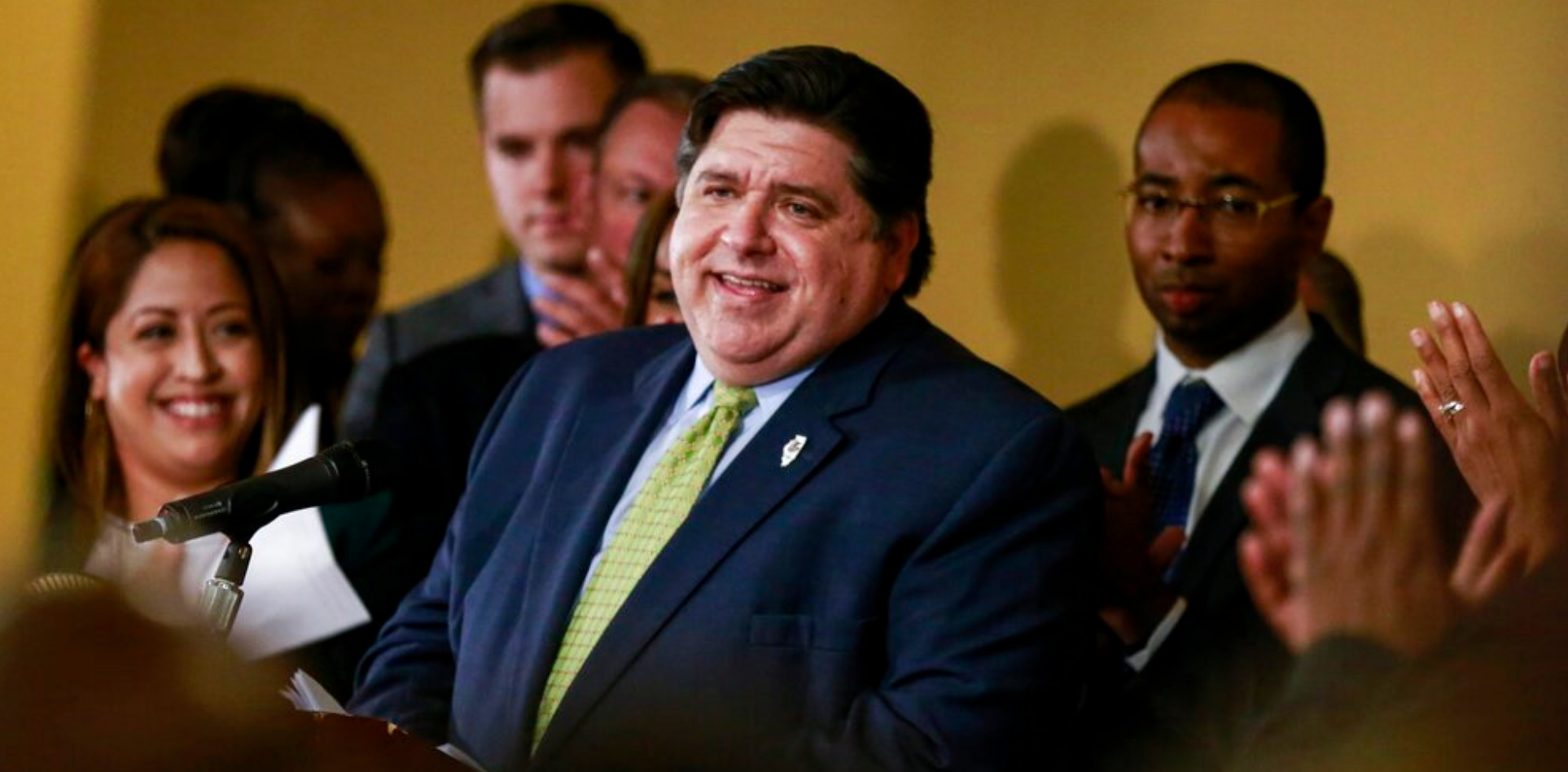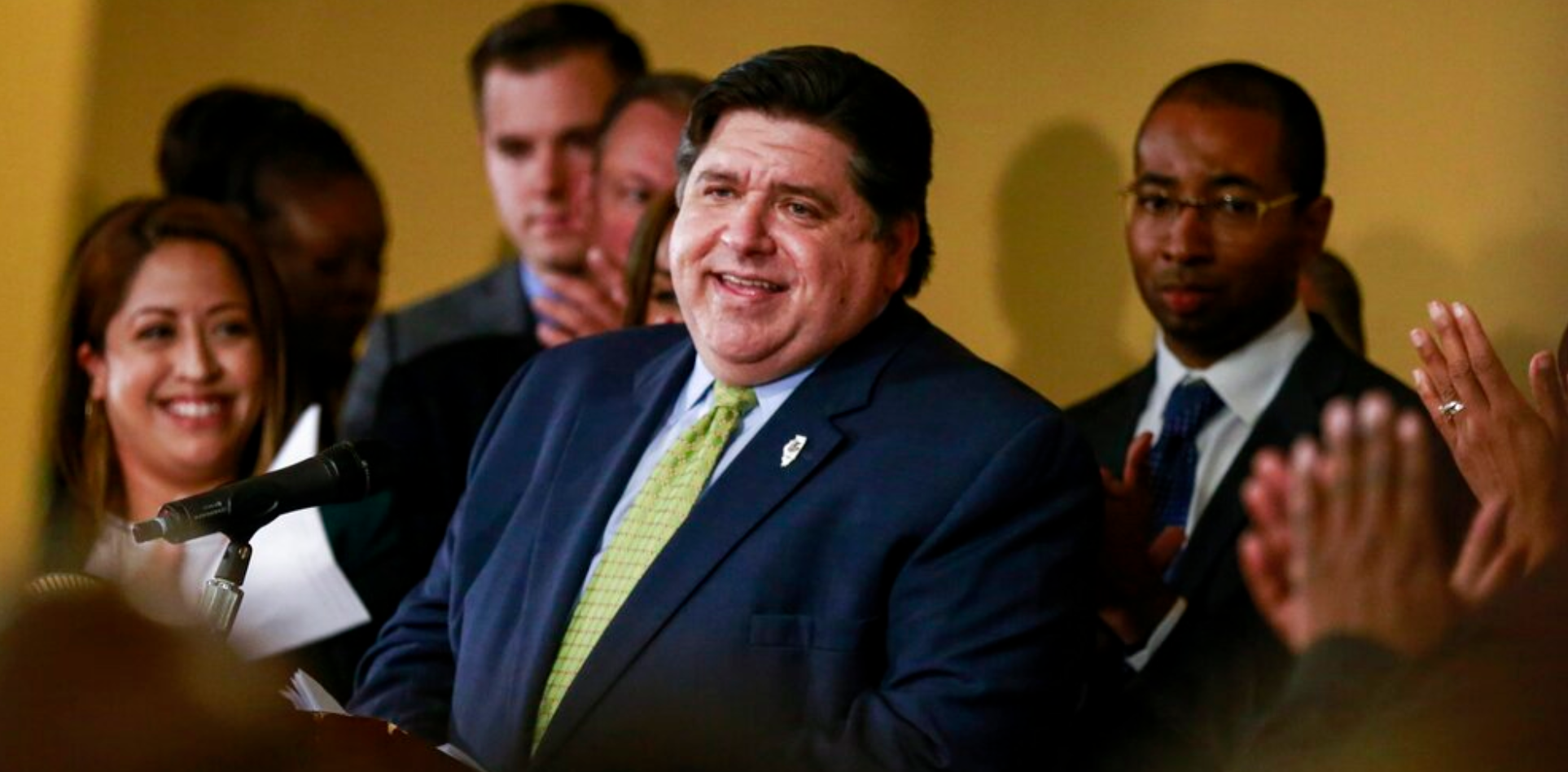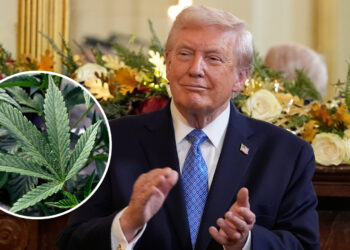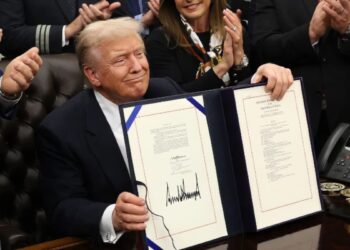
Illinois is officially the 11th state to legalize marijuana for adult use, with Democratic Gov. J. B. Pritzker signing the bill, HB 1438, into law on June 25, 2019.
Illinois is the first state in the country to pass comprehensive tax-and-regulate marijuana legislation through its legislature, as opposed to via a voter-approved ballot initiative.
The bill, which allows adults 21 and older to possess, consume, and purchase certain amounts of cannabis, will go into effect on January 1, 2020. It also includes several provisions aimed at promoting social equity in the legal industry.
As we stand here on this historic occasion, there are so many people I want to thank: @SenatorSteans, @RepKellyCassidy, Sen. @ToiHutchinson, @RepJGB, @RepCelina, @LtGovStratton, @SAKimFoxx, @SenNeilAnderson, @jasonbarickman, Rep. Welter and the Black, Asian and Latino Caucuses. pic.twitter.com/e8WgwA9Gbv
— Governor JB Pritzker (@GovPritzker) June 25, 2019
Individuals with prior convictions for possession of 30 grams, or about 1 ounce, or less will have their records automatically expunged. Those with convictions for more than 30 grams but less than 500 grams (1 to 18 ounces) could petition the courts to have their records cleared.
“As the first state in the nation to fully legalize adult use cannabis through the legislative process, Illinois exemplifies the best of democracy — a bipartisan and deep commitment to better the lives of all of our people,” Pritzker said at the signing ceremony. “Legalization of adult use cannabis brings an important and overdue change to our state, and it’s the right thing to do.”
State’s Attorney Kim Foxx called the bill “revolutionary in its work to right the wrongs of a failed war on drugs.”
Today, @GovPritzker signed HB1438 into law, legalizing recreational cannabis and providing conviction relief to hundreds of thousands of Illinois residents in the most extensive and equitable way possible. pic.twitter.com/c9aItwr3Cl
— Kim Foxx (@SAKimFoxx) June 25, 2019
The time for justice is now, especially for communities of color who have long been disproportionately impacted by low-level cannabis convictions and the failed war on drugs. We will continue our efforts to ensure the broadest relief possible under this revolutionary legislation.
— Kim Foxx (@SAKimFoxx) June 25, 2019
“The time for justice is now, especially for communities of color who have long been disproportionately impacted by low-level cannabis convictions,” she said.
“This historic law is the result of many years of activism and lobbying by many people and hopefully will repair some of the damages done by cannabis prohibition,” Dan Linn, executive director of the Illinois National Organization for the Reform of Marijuana Laws (NORML) chapter, told Marijuana Moment. “The social equity components and money that will go to communities that were disproportionately harmed are aspects I am very proud of.”
Steve Hawkins, executive director of the Marijuana Policy Project (MPP), also cheered the move.
“We applaud the Illinois Legislature and Gov. Pritzker on this resounding victory for personal liberty, racial justice, and common sense,” Hawkins said in a press release. “Illinois’ focus on fairness and equity in legalization should be a model for other states.”
The signing represents a fulfillment of a key campaign promise for Pritzker, who pledged to quickly legalize cannabis during his 2018 gubernatorial run. The process took longer than anticipated, with some lawmakers arguing that the bill didn’t go far enough to right the wrongs of prohibition, but the governor ultimately helped push it past the finish line.
Marijuana sales for flower containing up to 35% THC will be taxed at 10%. There will be a 25% tax on products containing more than 35% THC. And cannabis-infused products will be taxed at 20%t. That’s in addition to the state’s 6.25% sales tax; local jurisdictions have the option to impose another 3.5% tax.
While Pritzker estimated in his budget proposal earlier this year that a legal marijuana market would generate $170 million in revenue for the fiscal year 2020, a separate analysis projected that the state would take in more than $500 million in the first year.
Legalizing adult-use cannabis brings an important and overdue change to our state, and it’s the right thing to do.
— Governor JB Pritzker (@GovPritzker) June 25, 2019
We’re giving hundreds of thousands of people the chance at a better life — through jobs, housing and real opportunity.
— Governor JB Pritzker (@GovPritzker) June 25, 2019
We’re also creating a new $30 million low-interest loan program to create opportunity for entrepreneurs in the communities that deserve it most.
— Governor JB Pritzker (@GovPritzker) June 25, 2019
I’m so proud that our state is leading with equity and justice in its approach to cannabis legalization and its regulatory framework.
Because of the work of the people here today and so many more all across our state, Illinois is moving forward with empathy and hope.
— Governor JB Pritzker (@GovPritzker) June 25, 2019
The revenue will be used to cover the administrative costs of implementing the law and will also fund community grant programs, law enforcement operations, and substance abuse facilities.
An earlier version of the legislation would have allowed for personal cultivation, but it was amended at the last minute. Medical cannabis patients will be permitted to grow up to five plants for personal use, which is new for the program. Non-medical cultivation of up to five plants will be decriminalized, punishable by a fine, however.
“While only patients will be able to grow their own now, I am confident that eventually all adults in Illinois will gain that right in the near future,” said Linn of Illinois NORML. “It isn’t perfect and may have some issues in its initial launch, but the legislative process requires compromises and in the end, we have now achieved a long-sought goal of ending cannabis prohibition in Illinois.”
Existing medical cannabis dispensaries will have an advantage in the licensing process. Some advocates worry that between that and the ban on cultivation for personal use, there’s a risk that the law’s social equity provisions will be undermined.
That said, the law stands out from other legal cannabis systems in its strong focus on restorative justice and ensuring that the industry that emerges is equitable.
Individuals from areas that have been disproportionately impacted by the drug war, or who have convictions on their records for offenses made legal under the law, will be able to apply for cannabis business licenses as social equity applicants, helping them to secure the licenses and entitling them to fee waivers.
Also, $30 million will be set aside for a low-interest loan program designed to empower members from socioeconomically disadvantaged communities hoping to participate in the industry.
While the law goes into effect at the start of 2020, licenses for new cannabis shops will be issued by May 1, 2019; licenses for processors, craft growers, and distributors will be issued by July 1, 2019.
Featured Image: Democratic Gov. J.B. Pritzker is applauded June 25, 2019, after he signed HB 1438 into law, making Illinois the 11th U.S. state to legalize adult-use marijuana. Pritzker signed the landmark bill — Illinois becomes the first state to legalize and regulate cannabis through its General Assembly, as opposed to voters approval — at the Sankofa Cultural Arts and Business Center in Chicago. (Associated Press/Amr Alfiky)
This article was republished from Marijuana Moment under a content syndication agreement. Read the original article here.












